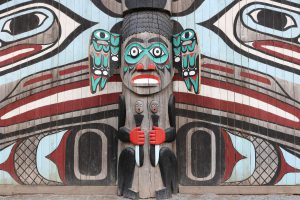First Nations People have endured devastating traumatic experiences since the impact of colonization. We need to decolonize ourselves from living in survival due to historical multi-generational trauma and get back to living together in harmony. We do this by using our own voice to talk about the history, put into words our collective experiences of oppression, historical racism, cultural loss and identity. We will be doing this collectively to promote healing and wellness from historical multi-generational trauma within our Nation.
Goal:
We will start by gaining an understanding of historical multi-generational trauma and how this trauma has impacted our personal lives, and community. We will recognize that collective trauma may be a normal response to an abnormal situation, not a form of pathology. We will understand the impact of colonialism on human development by gaining a greater understanding of neurobiological changes due to trauma and addiction, and how these then develop survival behaviors in self, family, and community.
We will increase our awareness of holistic self-care, and engage in holistic self-care healing activities, physical, emotional, social, cultural, spiritual. A balanced life is essential for everyone. The healing journey is a holistic journey.
We will create trauma informed systems that reinforce and promote community healing.
Objectives: The participants will:
- Learn the impact of historical intergenerational trauma on First Nations People, and the vicious cycle of collective suffering that impact the people today.
- Gain an understanding of the combined effects that addiction and historical intergenerational trauma have on the total person.
- Have up to date knowledge of the neurobiological changes in the brain and nervous system due to the effects of intergenerational trauma and stressors in the work and home environment of the people.
- Understand and identify the signs and symptoms of the “re-enactment of trauma” without self- care.
- Create and strengthen progressive Indigenous ways of healing, understanding the importance of culture as a foundation for self-care.
- Develop a personal wellness plan; apply self-care strategies for individual ongoing wellness.
- Recognize blocks and risk factors to self-care.
- Understand the trauma-informed practices and guidelines of the Nation.
- Identify the signs and symptoms of compassion fatigue of workers in the field of trauma and addiction.
- Identify ways in which the program or agency you work for will promote care giver safety, trust, and spiritual growth.
Patrick Paul, M.A., NCAC 11, Is recognized as a Behavioral Health Specialist, Educator, Facilitator, Program Designer/Developer and Author specializing in the art of holistic human personal and professional development in the area of chemical addiction, trauma, and historical multigenerational trauma.
During the past 36 years, Patrick has had the privilege of working as a Counselor/ Therapist, Behavioral Health Clinical Director, Assistant Professor in a Native College, and Developer of Native Counselor Certification Boards in Canada and the U.S. He is the Owner and President of Patrick Paul & Associates.
Patrick has a master’s degree in counseling psychology, is a Nationally Certified
Addictions Specialist, and a Certified Traumatologist.
He was honored with the Award of Excellence, at the 2005 National Native Addictions Partnership Gathering.
Patrick Paul is an Approved and Certified Education provider by the Indigenous Certification Board of Canada.
Patrick was honored by the Indigenous Certification Board of Canada 2015.



